Best movies like Two Lottery Tickets
A unique, carefully handpicked, selection of the best movies like Two Lottery Tickets Starring Grigore Vasiliu-Birlic, Dorina Done, Marcel Anghelescu, Alexandru Giugaru, and more. If you liked Two Lottery Tickets then you may also like: The Last Bullet, The Immortals, Revenge, Carnival Stories, The Moment and many more popular movies featured on this list. You can further filter the list even more or get a random selection from the list of similar movies, to make your selection even easier.
1957 film adaptation of Romanian playwright Ion Luca Caragiale's novella “Două loturi” (Two Lottery Tickets, 1901). The scenario was written by director Jean Georgescu, one of the most skilled Romanian filmmakers of the 1940s and 1950s, while the directing belongs to Aurel Miheleş and Gheorghe Naghi, at that time both recently graduated from the All-Union State Institute of Cinematography in Moscow. This is the second feature film in colour from Romania. Despite the great public success, the film was often criticized by reviewers, mostly for its unhandy directing from the two debutants. Miheleş and Naghi would however continue their collaboration and release another two Caragiale adaptations, of which “Telegrame” (Telegrams, 1959) was nominated for the Palme d'Or (Golden Palm) at the 1960 edition of the Cannes festival.
You may filter the list of movies on this page for a more refined, personalized selection of movies.
Still not sure what to watch click the recommend buttun below to get a movie recommendation selected from all the movies on this list
The Immortals
It's the story of a few men that wonder across Europe trying to come home and rebuild what Mihai Viteazul called "Romanian dream".
Revenge
"Revansa" (Revenge) appeared not so long after the preview movie of the series, "Un comisar acuza" (The Police Inspector Calls). In this sequel we meet up with police inspector Tudor Moldovan, once again, who wasn't actually killed and who has returned to put an end to Paraipan's actions once and for all. When Paraipan kidnaps Moldovan's kid, the police inspector makes up his mind to punish Paraipan and his bosses and to finish off the fascist movement, lead by Zavoianu and his allies. Together with the communist that fight to gain power, Moldovan takes out his enemies one by one.
The Moment
This movie is about a person that was convicted in the 50s by the stalinist policy of the times, then released and re-educated at the workplace in 65, as the policy changed.
Operation 'The Bus'
In 1950 a Western spy is clandestinely parachuted into Communist Romania to retrieve secret WW2 codes and agent lists and also to assist a group of anti-Communist guerrillas escape but the Communist police is setting a trap.
The Enchanted Grove
Lizuca is only six years old, not much older than her pet dachshund Patrocle, when her mother dies and she is left to live with her grandparents on their farm. Before long, Lizuca's father comes to take her away to live with him and his new bride, a vile woman who considers children the bane of all existence. Lizuca and the dachshund escape the wicked stepmother and spend the night in a hollow tree, a tree that changes into an enchanted land where Lizuca (like Alice through the Looking Glass) discovers a world of characters in the form of bees, frogs, the four seasons, Snow White, her dwarves, and other fairy tale creatures. This magic place is threatened by the evil stepmother's plan to sell the grove that protects the secret land to developers -- a decision that puts the woman on trial before this perfidy can be realized.
Alarm in the Delta
During the 1970s a foreign smuggler is taking hostages and threatening to sabotage a river pumping station if he is not aided in his attempt to smuggle ancient artifacts out of Romania.Two young local boys foil his plans.
The Soimaresti Clan
Vying for Principality of Moldavia's throne the descendants of Prince Stephen the Great start a bloody civil war in 1612.
Shootings Under the Moonlight
During 1947 Romania's Communist Security Forces hunt down the last anti-Communist resistance fighters in the remote mountain villages of Transylvania.
The Outlaws
First of 2 films set during the 18th century in the mountains of Wallachia, about a band of outlaws aiming to undermine the rule of the Phanariots and the Ottomans. The story evolves around the two stepbrothers who lead this band, Sarbu and Amza, with their complex and violent relationship.
Brigade Miscellaneous on Alert
The adventures of three Romanian inept petty criminals during the 1970s.
A Police Inspector Calls
The Iron Guard, also known as Legion of Archangel Michael, was a Romanian nationalist and patriotic movement of extreme right; as such, after it rose to power, it supported Nazi Germany and started a fierce campaign of retaliation against its political enemies. As such, in the night of November 26-27, 1940, the Death Teams executed forty political prisoners in the Jilava prison (in the movie, named "Viraga"), and next day, other two Teams arrested and shot the former minister Virgil Madgearu and the world famous historian Nicolae Iorga. To squash down the political outcry, the Police Prefect Stefan Zävoianu conveniently assigns the cases to a commissioner from the "Morals Division" (prostitution, thieves), Tudor Moldovan, hoping that he will fail to get to the bottom of the case. However, Moldovan has communist sympathies, so he quickly comes under the influence of the Bolshevik Pîrvu, who had escaped during the Viraga...
Babusca's Adventures
In 1975 two Romanian kids go about their daily routine in their native fishing village on the Danube Delta when a mysterious stranger asks them for a ride in their fishing boat to an island located deep inside the river delta.
Son of the Mountains
An espionage agency is looking to kidnap Alina, the daughter of the Romanian engineer Muresan, to make her father divulge important secrets. On a trip, Muresan's wife and daughter know a young tourist who accompanies them up to a point where they are hosted by Matthew, a very agile little boy, hard-hitting the mountain.
Mercenaries' Trap
The movie is based on a true story from the end of WWI, in Transylvania. A nobleman who owned some land in Transylvania returns home to find a part of his fortune burned to ashes during late 1918 when power was trasfered from AustroHungary to Romania. Looking for revenge, he ordered the killing of innocent Romanian peasants from a neighbouring village, which he suspected to be guilty for the losses he suffered. A Romanian officer from Romanian Transylvanian Volunteers Corp, decides to help the villagers to face the menace of the nobleman
The Ivory Aigrette
Two pioneer teams fight for the ivory aigrette, the great shooter trophy .
Ciprian Porumbescu
This film envisions the patriotic and tragic life of Romanian composer Ciprian Porumbescu.
Două inimi
Lexi, a 19-year-old girl, poor, with a life full of difficulties, writes lyrics and music in a notebook. Before an important meeting that can change her life and in which her notebook would play a crucial role, Lexi loses the notebook.
Anything for Soccer
In a small provincial town everything goes well, apart from sports activities. The local soccer team is on the verge of relegation. But the ones responsible with the team are ready to do "everything for soccer", even match-fixing.
Why Are the Bells Ringing, Mitica?
Based on a theatrical text by Romanian writer Ion Luca Caragiale (1852-1912), who was a bitter and funny witness of the turn-of-the-20th-century Romanian bourgeois mores, Carnival Scenes manages to preserve and further enhance the slightly hysteric atmosphere of his plays. Pintilie creates a strange combination of carnival scenes which is brought to the screen as a burlesque, fast-paced, screwball comedy with a meditative undertone. This film was banned in Romania for a decade until the death of Ceausescu in 1989 and was only released after the 1989 revolution.
Păcală
Pacala is an important hero in Romanian popular tradition. He is always making fun of everything wrong with the human behaviour such as stupidity, greed or vanity. His attitude and actions always bring damages to the mean, evil and materialistic people. So beside the jokes, the movie has this philosophical layer, undoubtedly because Pacala's independent way of being, free spirit and his love for the nature creates a way of seeing life, bringing joy. Filmed in a very beautiful part of Romania in 1974, the movie had an important success at that time and it is considered one of the most loved movies in Romania ever. Like the hero, found in many stories and jokes, the movie forwards the spirit of true freedom and pure link with the nature, forgetting about times and governments.
Glissando
In a devastating story rife with visual metaphors, Romanian director Mircea Daneliuc traces the slow mental disintegration of a confirmed gambler, using his disorder as an allusion to a greater national and social disorder. Set in the 1930s, the middle-class gambler meets an elderly man who seems to bring him good luck at the gaming tables. Rather than treasure his friendship and the good fortune it brings, the gambler takes advantage of his friend, and by his actions drives the man to suicide. Unable to reconcile his own mental demons, the gambler wanders through the house of his dead friend, and his experiences there only serve to unsettle his mind more and more and more. In the last reels of the film, the fantasies of the hero's deranged mind take over.
Mofturi 1900
Mofturi 1900 is a 1964 Romanian comedic film directed by Jean Georgescu and based on Ion Luca Caragiale's many Moments and Sketches. The sketches used are "Diplomatie" ("Diplomacy"), "Amicii" ("Pals"), "O lacuna" ("A gap"), "Bubico", "C.F.R." (abbreviation of "Romanian Railways") and "Din statiune" ("From resort"). The film stars Grigore Vasiliu Birlic, Iurie Darie and Ion Dichiseanu; and features Ioana Bulcă, Alexandru Giugaru, Mircea Crisan, Geo Barton and others. Set at the beginning of the 20th century, the story revolves around two Mitică characters sitting at a cafe telling stories to each other.
The Mill of Good Luck
Follows the inner transformation of a man who tried to fight his demon, the love for money, and lost.
The 25th Hour
A Romanian peasant fights to get back to his family after he's imprisoned by the Nazis.The picture is based on real events. It includes Hungary's government in collaboration with the Nazis, the encroachment of Romania by Stalin's troopers, and other happenings.
Earth's Most Beloved Son
The life-story confession of a prisoner waiting for his trial. Victor Petrini, a promising intellectual in the 1950s and a lecturer in Philosophy is arrested by the repressive secret police, wrongly accused of espionage, and sentenced to prison and forced labor.
Beyond the Bridge
Mara, a hard-working widow woman brings up his two children in a developing idustrial Transylvanian town.
Ciuleandra
After he kills his beloved wife, Puiu Faranga is helped by his father to fake insanity.
Three Days and Three Nights
In 1946, Northern Transylvania, an armed band is annihilated by the local communist organization, which manages to rally the locals on they side.
The Youth Elixir
An old geriatrics professor accidentally discovers after a high-school reunion a potion that can rejuvenate anybody and uses it on him and his friends. They all go their new youthful ways but, for most of them, things don't go according to plan.
Mirror
Depicts Romania during World War II, focusing on the Royal Coup that toppled Ion Antonescu, the Axis-allied Conducător and authoritarian Prime Minister. Focused around the August 23rd 1944 coup against Marshal Antonescu, the movie also tackles other topics from the same era such as the Iron Guard rebellion and the execution of political leaders by communists.
In Our Village
The film shows that Romanian peasants were divided between those opposing and those embracing collectivization. The heated debates between the pro and con camps would ultimately lead to murder.
The Escape
Two Romanian soldiers manage to escape from a camp in Tatra mountains, Czechoslovakia.
Emisia continuă
Based on actual events which happened at the Radio Romania station in Bod-Brasov, during the beginning of the revolution for social liberation and for the country's national liberation, an anti-fascist and anti-imperialist revolution, on August 23, 1944. After King Michael I ousts the Nazi-allied dictator Ion Antonescu, Nazi troops struggle to recapture the Radio Romania station, their former headquarters in an attempt to regroup their forces, but are opposed by a determined band of anti-fascist fighters.
The Other Irene
Security guard Aurel (Andi Vasluianu) and his wife Irene have a moderately happy marriage and a moderately comfortable lifestyle in urban Romania. Irene takes a working trip to Cairo and returns invigorated with the swell of success. She sets out again and never returns. What follows is both predictable and unpredictable. Aurel, and the audience, are suspicious of the official explanation of her death so the foundation is laid for the traditional who-dunnit. Aurel proceeds on an emotional search against all odds.
Ghost Train
This earliest surviving Romanian horror-thriller is distinctly un-Romanian in several ways: an adaptation of Arnold Ridley’s play of the same name (best known through its 1941 film version starring Arthur Askey), TRENUL FANTOMĂ was shot in Hungary as an alternate-language version of KÍSÉRTETEK VONATA (1933), with both films using footage taken from the 1931 British movie adaptation.
Happiness Is So Close
Cristina, a girl from a well situated family, falls in love with a young working man, who manages to get into college.










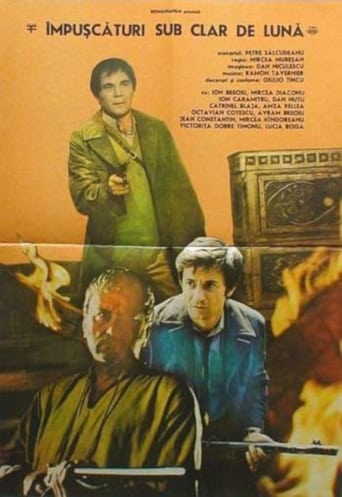
















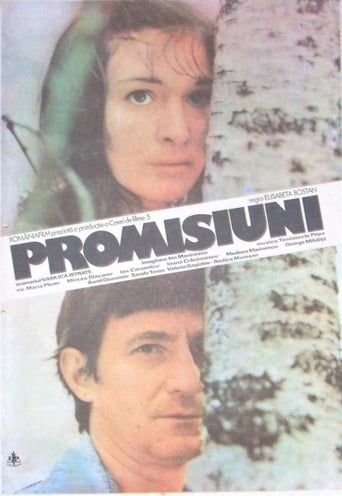






















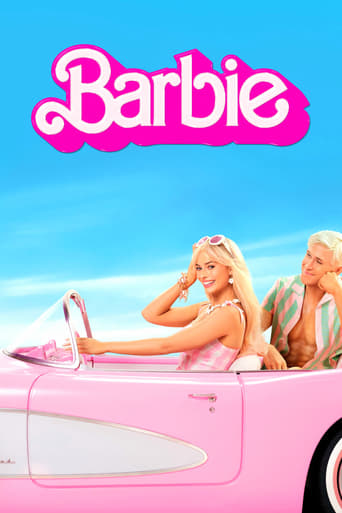

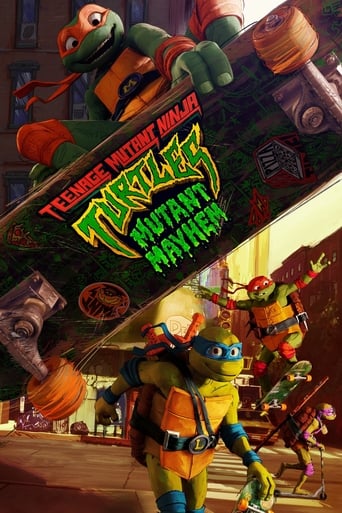

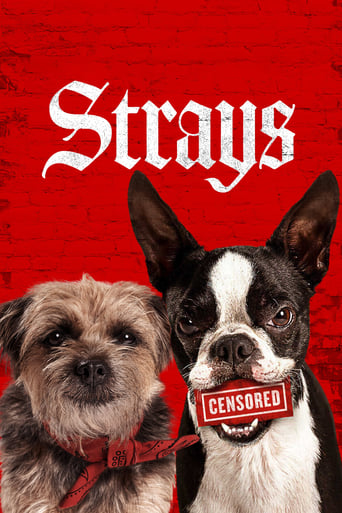
The Last Bullet
A continuation of a story started in the drama "With Clean Hands" (1972).